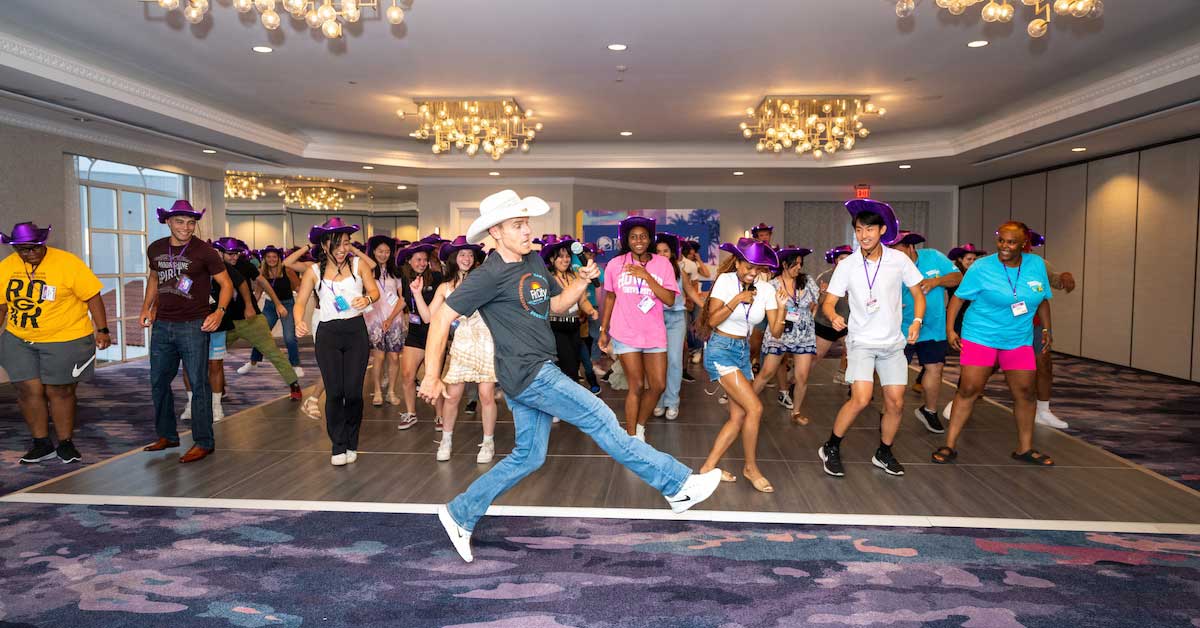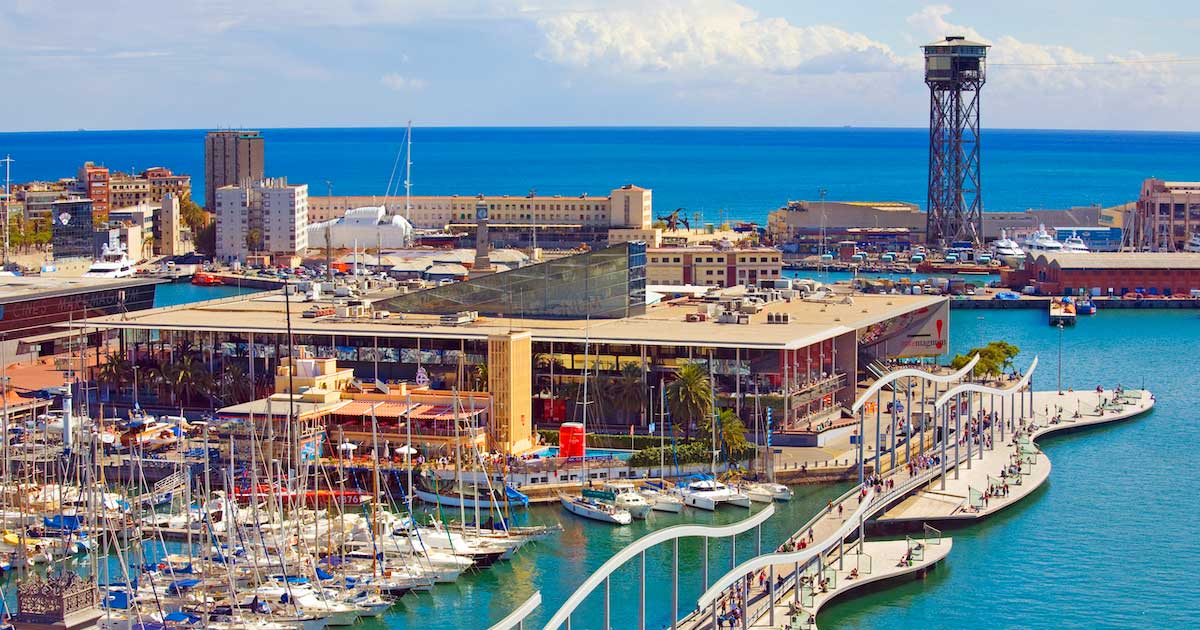Laura Tavazzani certainly sees the value in having a strong professional community after the stress created by the COVID-19 pandemic.
“It is great to have a community—albeit online—to turn to and a space for connecting and sharing valuable ideas with people that have experienced the very same challenges, uncertainty and fears that you’ve experienced and, hopefully, will soon overcome,” says Tavazzani, co-chair of the MPI Administrative Professionals community. “Our advisory board and community are made up of wonderful people from different backgrounds and cultures.”
We caught up with Tavazzani (MPI Greater New York Chapter), her board co-chair Oksana Motruk (MPI Toronto Chapter) and fellow board member Maryna Kaduchenko (MPI Toronto Chapter) to find out how they have fared during the pandemic, their thoughts on industry recovery and what skills administrative planners should focus on in order to excel in the current environment. Learn more about the MPI Administrative Professionals community in the sidebar.
The Pandemic Begins
Tavazzani says she had great professional expectations for 2020.
“It was February, and I had just moved countries and was ready to dive head-first into new opportunities,” she says. “Just a few weeks later, the entire world stopped, with New York being one of the first U.S. cities hit hard by COVID-19. The industry suddenly became even more competitive, with very few to no job listings to be found and a lot of companies downsizing.”
Tavazzani says the need to acquire the skills necessary to move from organizing mostly in-person events to online experiences was immediately evident.
“I believe that the experiences of all the professionals in this field have, sadly, been similar,” she says. “We all have had to find ways to reinvent ourselves and our work, continuing our professional development and identifying new opportunities in the industry such as that of hybrid events—a new world with so many opportunities and yet so many challenges!”
“Our advisory board and community are made up of wonderful people from different backgrounds and cultures.”
Motruk agrees that the pandemic presented the opportunity to acquire new skills while working and engaging with people from home, but the early days mostly created stress and uncertainty as to when and how events might resume.
“The hardest thing for me was to cancel all my hard work—cancel all vendors and venues, refund tickets and the list goes on and on,” she says. “But even though the pandemic brought lots of downsides, the hope was still there.”
Motruk says 2020 presented new possibilities and experiences.
“Everything went online, and the event companies made the impossible possible,” she says. “They have brought events to the next level of audience engagement and event experience.”
Kaduchenko was participating in the Special Events Management program at George Brown College in Toronto when COVID-19 was declared a global pandemic in March 2020. And though she faced a significant change both personally and in terms of her education, she says she has embraced the journey and is learning how to deliver quality experiences through virtual events.
An Industry Recovers
As vaccine availability has increased and gathering restrictions are slowly eased in many U.S. states, Tavazzani is looking forward with anticipation to what comes next.
“However, in order to reach a full recovery, we must remain vigilant,” she says. “Not only should we keep up to date with local regulations, but once venues reopen to almost full capacity and in-person events are allowed, we must also ensure that guests feel safe attending. As we venture forward, I believe that community life will be essential for sharing best practices and ideas and, most importantly, realizing once again that we are in this together.”
MPI Administrative Professionals community. Fulfill your potential with one of the largest networks of meeting professionals.
Motruk agrees that safety at events is the top priority right now and notes that event regulations will continue to change at a high frequency.
“As an administrative professional it is important to stay up to date with all health regulations,” she says. “It has been challenging to schedule an event for a specific date as we never know what might happen by that time.”
Kaduchenko says she is trying to collect as much information as possible about vaccinations and how they will affect the meeting industry.
Focus on Skills
Multitasking and flexibility have been and will continue to be key strengths for many administrative professionals, according to Tavazzani.
“While the very nature of the job often leads us into dealing with ambiguity, recent events have stretched our abilities in terms of technical skills, too,” she says. “We all remember the awkwardness of our first Zoom calls.”
Tavazzani says that while the shift from in-person to virtual has been challenging, an even more demanding challenge awaits.
“Hybrid events, to some extent, effectively require the simultaneous planning of two different events, doubling up on that ambiguity and requiring even more diverse soft and hard skills,” she says.
Motruk says the most important skill for the administrative professional has always been the ability to successfully conduct research—keeping up with trends, new platforms, regulations and more—while Kaduchenko says creativity and analytical thinking skills will help in navigating this time of change.
WHAT LESSON HAVE YOU LEARNED DURING THE PANDEMIC?
“When change has occurred and you don’t see the exit, just keep going one step at a time and don’t afraid to ask for help or brainstorm ideas.” - Motruk
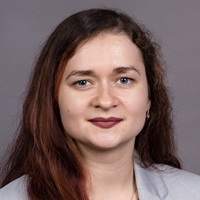
“This pandemic forced us all to re-evaluate our choices, and to do so without warning. It taught us resilience and how crucial it is for both our personal and professional success.” - Tavazzani
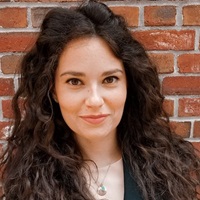
“I’ve learned how to adapt to change. I’ve set up a routine and it keeps my work-life balance from tipping too much toward work or too much toward life.” - Kaduchenko
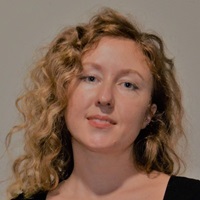

Motruk says the MPI Administrative Professionals community offers members the opportunity to network, stay up to date on trends, learn new skills and much more.
“We are searching for the latest trends, platforms and information that will engage the audience and bring more people to MPI,” she says. “Administrative professionals are the ones who connect the outside world with the MPI community. You are joining people who will support your ideas and decisions, guide you through tough decisions and help you in any area that you need.”
Former co-chair Kirsten Knauer and the previous advisory board did an excellent job providing the community with useful resources such as the Meeting Budget Worksheet and the Program Status Grid Worksheet, according to Tavazzani, who highly recommends downloading these resources (available at no cost for MPI members).
“We work tirelessly to find the tools that can be most beneficial for our community and have recently started an experimental wellbeing series for our board members,” Tavazzani says. “During our monthly meeting, we dedicate the last 15 minutes to our overall mental and physical health—from dance classes and scavenger hunts to breathing techniques and meditation. While the desired outcome of each activity differs slightly, our overall objective is to boost physical health, relieve stress and create occasions to engage with your peers while having fun. We hope to soon make this series available to our community as a whole.”


.jpg?sfvrsn=96553155_1)
